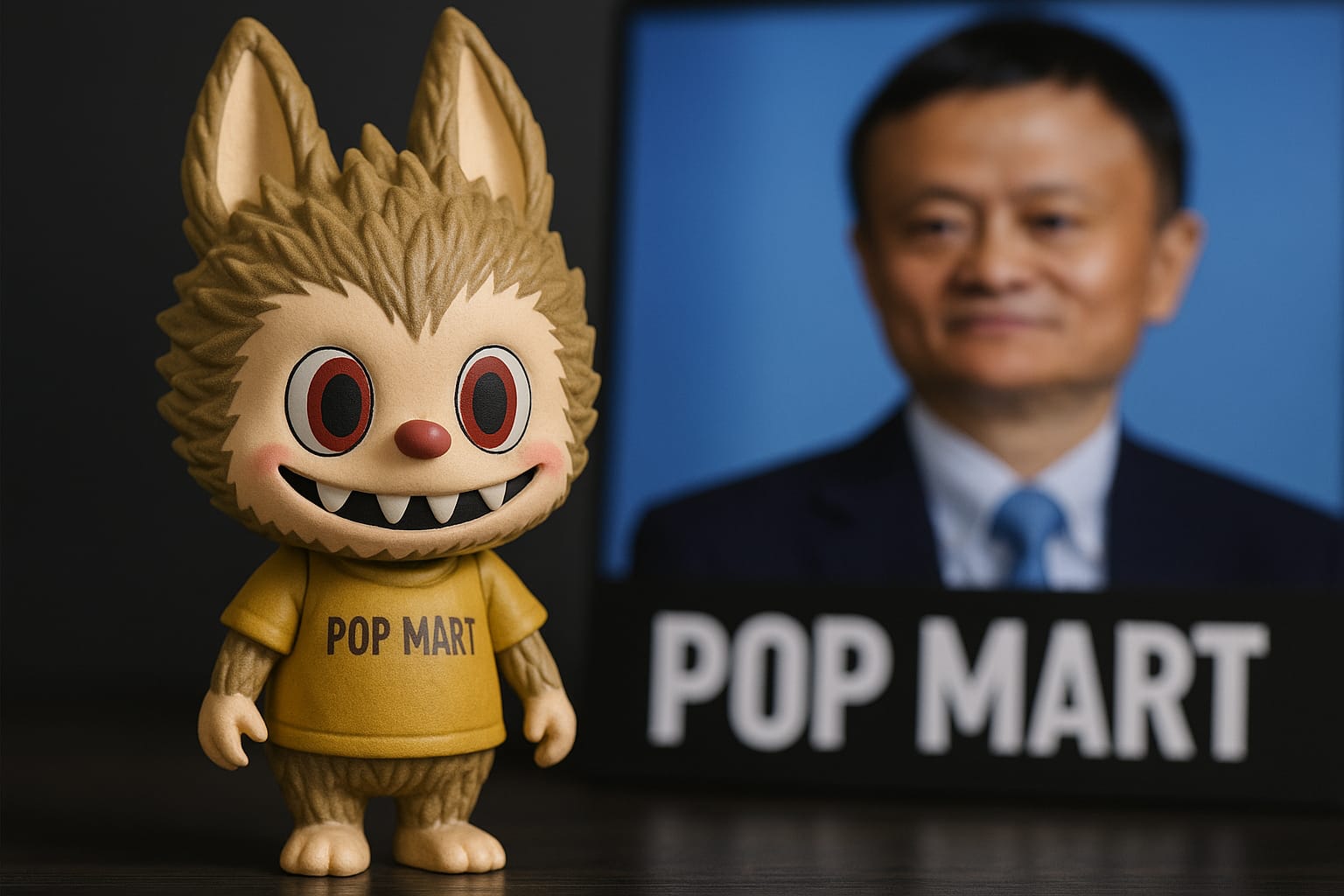In the world of global business, unexpected stories often capture headlines. This week, one such story took the spotlight: the runaway success of Labubu, a mischievous little toy figure from Pop Mart, has driven sales so high that analysts are comparing the company’s fortune to none other than Jack Ma, the legendary founder of Alibaba. At first glance, the idea of a collectible toy reshaping business rankings may seem unlikely, yet the Labubu craze has proven that consumer passion can be as powerful as technology innovation.
The Labubu toy, with its wide-eyed expressions and quirky design, was created by artist Kasing Lung and launched under Pop Mart’s “blind box” strategy. Blind boxes are collectible packages where buyers do not know which specific figure they will receive. This concept, which combines surprise with scarcity, has transformed Labubu into more than a toy. It has become a cultural movement. From Beijing to New York, from Tokyo to London, fans line up outside stores, trade figures online, and pay hundreds of dollars on resale platforms just to complete their collections. What began as a niche design has turned into a global obsession.
Pop Mart recognized this cultural energy and capitalized on it with astonishing speed. The company expanded aggressively into international markets, setting up flagship stores and online platforms that catered to collectors worldwide. With each new release, limited edition Labubu figures sold out within minutes, generating both revenue and social media buzz. Influencers showcased their unboxing experiences on TikTok, YouTube, and Instagram, turning Labubu into a star that transcended geography. Unlike traditional toys, which target children, Pop Mart’s blind box culture appeals to young adults seeking both nostalgia and novelty. The result has been a booming business that no longer fits into the “toy company” label but rather into the broader category of lifestyle and entertainment brands.
What makes this story particularly fascinating is the comparison to Jack Ma. For years, Jack Ma symbolized China’s entrepreneurial spirit, building Alibaba into a global e-commerce empire and becoming one of the wealthiest individuals in Asia. His story was the benchmark for modern Chinese business success. Now, headlines proclaim that Pop Mart’s global sales, driven by Labubu, have created wealth so significant that it outpaces the personal fortune of Jack Ma. While it is important to note that these comparisons often depend on market valuations and shifting net worth estimates, the symbolic impact remains powerful. A toy figure, born out of creative design and clever marketing, has become a challenger to the icons of the digital economy.
The deeper story here is about consumer trends. Today’s markets are no longer defined solely by practical goods or technological platforms. Emotional value, cultural connection, and scarcity-driven demand are becoming equally important. Labubu thrives on these principles. People are not just buying plastic figures; they are buying into a sense of identity, belonging, and fun. In a time when global economies often feel uncertain, collectibles provide a form of joy and escapism. Owning a Labubu becomes more than possession, it becomes participation in a global conversation.
From a business perspective, Pop Mart’s success demonstrates how niche creativity can scale into global influence. Instead of chasing technology or industrial dominance, the company focused on something deeply human: the joy of surprise. The blind box strategy plays on curiosity and emotional satisfaction, encouraging repeat purchases. By combining this with international expansion and savvy online marketing, Pop Mart has turned a local trend into a global movement. Analysts suggest that the company’s valuation has now placed it among the top consumer brands of Asia, making it one of the most valuable toy enterprises in the world.
The Labubu toy craze also reflects the shifting nature of wealth creation. In previous decades, wealth was associated with traditional industries such as real estate, energy, or e-commerce. Today, cultural products and intellectual property can generate comparable fortunes. The fact that Pop Mart is now mentioned in the same breath as Alibaba shows how consumer culture has gained financial weight in the global economy. Investors are beginning to view collectibles not as trivial hobbies but as powerful business drivers.
Social media has played a defining role in this phenomenon. Every Labubu unboxing video, every Instagram post of a completed collection, and every TikTok trend around Pop Mart has multiplied interest. Unlike Jack Ma’s Alibaba, which built its empire on logistics and supply chains, Pop Mart built its empire on emotional virality. The two models represent different eras of Chinese business: one rooted in infrastructure and commerce, the other in creativity and global fandoms. The fact that they can now be compared on the same scale shows how far cultural capital has come.
For global readers, the question remains: can Pop Mart sustain this growth? Fandoms are powerful but can also be unpredictable. Collectibles thrive on rarity, but oversaturation could cool demand. At the same time, Pop Mart continues to innovate by introducing collaborations, expanding characters, and adapting to new markets. As long as it keeps the balance between scarcity and creativity, Labubu’s appeal is unlikely to fade soon.
The story of Labubu making Pop Mart “richer than Jack Ma” may be framed as a headline, but beneath it lies a meaningful message about how modern wealth is generated. The digital age has not only empowered entrepreneurs in technology but also creators and brands that connect with human emotion. Labubu proves that imagination, when paired with clever marketing and global strategy, can rival even the giants of e-commerce.
For those following the intersection of culture and business, this is a reminder to take collectibles seriously. They are no longer fringe hobbies but forces that shape industries, influence markets, and create fortunes. Whether Pop Mart truly surpasses Jack Ma or not, the symbolic comparison itself tells us everything about where consumer energy is heading.
To keep up with stories like these, explore our News section for weekly global business highlights, dive into Technology for insights on innovation, and visit AI Tools to understand the digital side of emerging trends. For official resources, you can explore Pop Mart Global and Bloomberg Business for financial updates, as well as Alibaba Group for context on Jack Ma’s empire.
The rise of Labubu is more than a quirky news item. It is a sign of how cultural products can redefine wealth, how global audiences shape markets, and how creativity can stand shoulder-to-shoulder with technology. Pop Mart’s story is a reminder that in the twenty-first century, even the smallest characters can create the biggest headlines.




